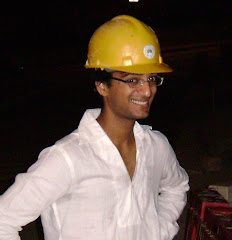CG1413 has been a module of self-discovery for me. Working in a team for a module for the first time, I have learned not just about myself, but also about others and how to interact effectively in a team such that I can benefit the team using my strengths. In this post, I would reflect and summarise what I have learnt from this module.
I have found out that being an extrovert, it is easier for me to approach new people. I can be an asset as a leader as I would be able to quickly open up with people and help them open up with each other. I have also found out that I can use my voice and expressions to my advantage and have a knack for spontaneity and thinking on my feet.
However, my confidence can become my weakness if it turns into overconfidence, as what happened in Oral Presentation 1, where I had not prepared my presentation, thinking I would give an impromptu, and ended up getting nervous and stuttering during the presentation.
Another area I need to work on is my approach to problems. Coming from a competitive background, I have a more straight-forward way of talking to people. However, the work environment in Singapore promotes a politer behaviour. I need to be less aggressive in conflict-resolution lest I might come off as authoritarian. I realised this while working in a team for one of my modules. Even though my group-mate didn’t say anything, I could tell that something I said had pinched him. I talked to him later and it turned out that I had indeed hurt his feelings unknowingly.
Working in a multi-cultural environment is very different from working with people from same background. Some people may not be comfortable interacting with those with different nationalities or accents. It is the responsibility of everyone in a team to ensure that these people get enough opportunities to present their views. For instance, Dam Long was very shy in the beginning of semester and would not speak much in meetings. However, as we encouraged (or even forced at times) him to speak, he became more confident and the result was very evident in Oral Presentation 2.
Overall, this module has been a learning journey and I say this not just for the sake of saying it but because I actually felt it. Even though the soft skills we learn are intangible, I have started to see its effects. I am now better at expressing my views and am more receptive of other people’s opinions. These skills would go a long way in improving my social and professional interaction in future.



.jpg)